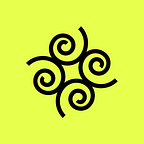2021–2022 // Estonia, Latvia, Lithuania
In 2020, the European Commission announced its ambition to renew the cooperation with Africa and emphasised collaboration in the fields of green transition, digital transformation, sustainable growth and jobs, peace and governance, migration and mobility. However, the world has significantly changed since then — Russia’s aggression against Ukraine on 24th February 2022 has added new angles and invoked new debates in the EU-Africa relations.
The Baltics find themselves in an interesting position — even before the war there was in interest building partnerships with African counterparts but the UN votes on Russia’s aggression has actualized engagement with Africa even more. In the light of historical experience with Russian occupation and in-depth expertise in regional security, the Baltics are well-positioned to bring meaningful inputs to EU-Africa discussions on multiple implications of Russia’s aggression against Ukraine, including transcontinental cooperation in security, migration, strategic communication, digital and green transformations.
With an endorsement of Baltic MFAs, we started the Baltics-EU-Africa Trialogue Project, which aimed to facilitate greater Baltic participation in the EU-Africa partnerships building through analysis based inclusive policy discussions. As AfriKo’s modus operandi is “walk the talk”, the informed and inclusive policy discussions were not the end in itself but rather a method to co-create specific policy tools together with Baltic stakeholders.
Cooperation with the Centre for Small State Studies ensured the analytical rigour of the research process. It incorporated a Nordic perspective to highlight about how the advantages of small states can be leveraged in the form of multilateral partnerships for mutual growth.
The Trialogue consisted of three stages:
- Primary Analysis. Baltic experiences, attitudes, and interests’ analysis in the EU-Africa partnership has taken an anthropological, inclusive and open-ended interpretative approach to the process of data collection. It combined desk research and interviews with various Baltic, European and African stakeholders, comprising policymakers, diplomats, experts, and practitioners from the private sector, civil society, and academia.
- Policy Discussions. The primary analysis provided a basis for inclusive expert discussions on the national, Baltic, and EU-Africa levels. Guided by the spirit of co-creation, these discussions aimed at formulating policy tools that could assist the Baltics in deepening their engagement in EU-Africa relations.
- Policy Paper with Recommendations. This paper summarizes and reflects the outcomes of the primary analysis and policy discussions. It is intended to serve as a source of knowledge and a benchmark for Baltic policymakers, and seeks to establish a follow-up mechanism.
What has happened over the Trialogue?
On February 19, we officially kicked off the Trialogue project together with policymakers from the Ministries of Foreign Affairs of the three Baltic countries, representatives of European institutions and other stakeholders in the Baltic and African countries
During the project, we have concluded 49 research interviews with different stakeholders from the Baltics, EU and Africa and conducted primary analysis on such topics as African tech ecosystem overview, innovation in development cooperation, inclusiveness of new actors and public sector expertise in the EU-Africa policy agenda. We put together a paper about innovation for development cooperation, which you can find here.
Based on primary analysis, we have organized inclusive and informed national roundtables in Lithuania (April 30, 2021), Estonia (September 23, 2021), Latvia (June 2, 2022)
We had last exclusively Baltic roundtable with 15 stakeholders from all of the three countries on September 22, 2022. We discussed the project’s progress, insights from primary analysis and recommendations about the Baltics’ role in the EU-Africa partnership.
The journey concluded on the 26th of September with our final Trialogue Project event in Brussels that we organized together with Africa-Europe Foundation. It took off with a quick overview of recommendations from the Trialogue project on how to enhance Baltic engagement with African countries. It was followed by the statements and a short Q&A with the Estonian and Latvian ambassadors Daniel Schaer and Ivars Lasis.
But the event’s highlight was a polemic discussion about the EU-Africa agenda in connection to Russia’s invasion in Ukraine, where the panelists Arnoldas Pranckevičius (Lithuanian Ambassador to the EU), Serhii Tereshko (Deputy Head of the Mission of Ukraine to the European Union), Nicola Bellomo (Head of Division of Pan-African Affairs in the European External Action Service), Dr Hassan Khannenje (Director at the HORN International Institute for Strategic Studies), Dr Patryk I. Labuda (Assistant professor of international law at the University of Amsterdam) discussed the clash of narratives, westplaining, EU unwavering support to Ukraine, and the need to amplify CEE voices in engagement with Africa among many other aspects of the topic. The panel was moderated by Daniele Fettibene. You can find the full discussion video here.
One of the panelists Dr Hassan Khannenje has put together an analysis of some of the more important parts of the panel, which we invite you to read here.
Lastly, we have also put together a full report of the project’s insights and recommendations, which you can find here.
The Estonian roundtable and conducted policy analyses on inclusiveness of new actors and public sector expertise in the EU-Africa agenda have been partly funded by the Lithuanian NGO Fund and the Ministry of Social Security and Labour of Lithuania.
